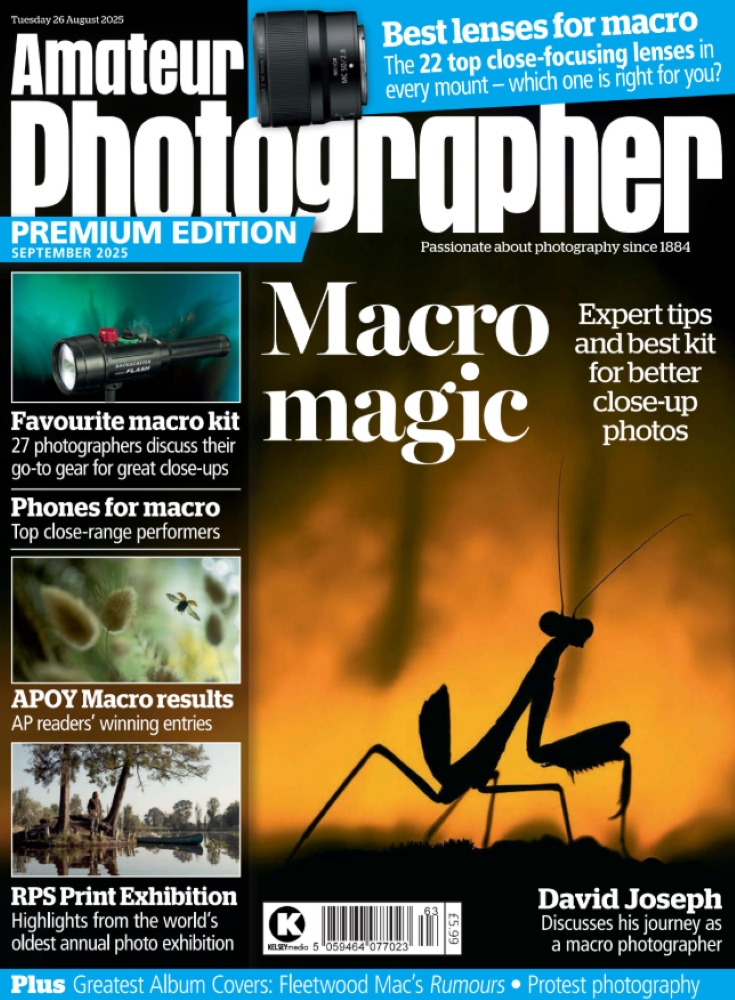AP contributor Jon Stapley recently called for photographers to boycott Adobe and turn to other photo-editing software. Geoff Harris reckons he needs to calm down a bit
We are a diverse bunch here at AP and don’t always agree on everything – indeed, different opinions should be encouraged in photography. As Chairman Mao said, ‘let a hundred flowers bloom; let a hundred schools of thought contend’ (though I’d never compare editor Nigel to a communist dictator!)
It’s in this spirit that I am taking issue with my colleague Jon Stapley’s rather overheated call for photographers to boycott Adobe. Now, before any conspiracy theorists pipe up, I am not being paid by Adobe to take up the cudgels on their behalf: I was using Adobe software long before I joined AP, and will likely continue to do so into my dotage. Lightroom was, and is, a massive help to me as a photographer.
Let me go through Jon’s main complaints and concerns, some of which are echoed by other AI doom-mongers.
Adobe’s subscription model is a rip-off
While it’s true that a tenner a month for the Adobe Photography Plan will cost you a cool £600 over a five year period – and you never actually ‘own’ the software – the model has clearly worked for years. The simple reason being, Photoshop and Lightroom are still really good. Nobody is holding a gun to the head of the consumer here, and subscriptions can be cancelled.
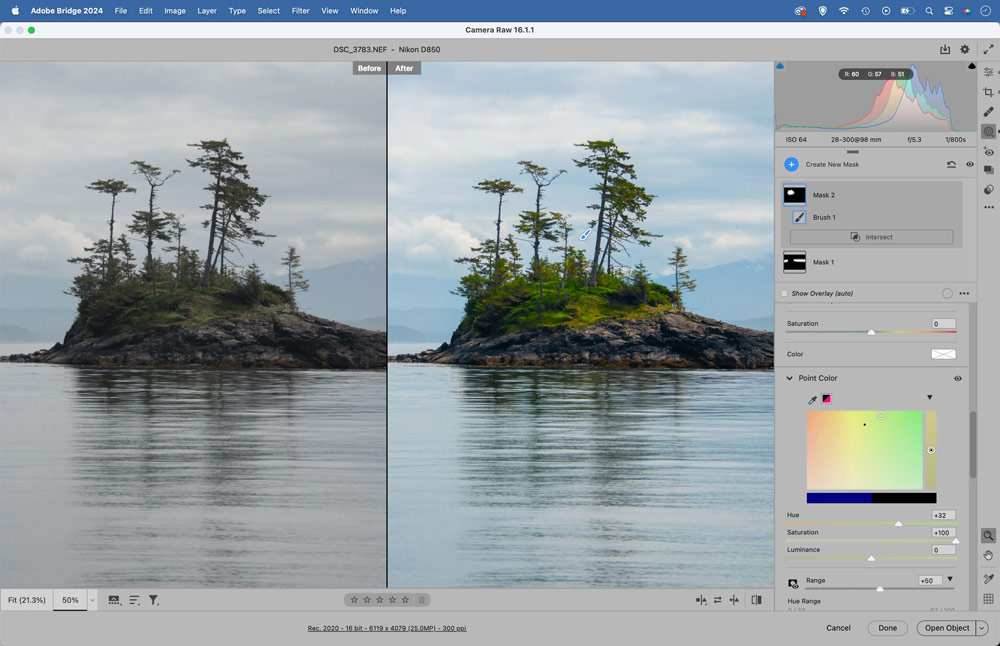
Yes, there are lots of good, alternative, subscription-free photo-editing programs out there – Affinity Photo, for example – but they have not been good enough to seriously eat into Adobe’s market share or lure away legions of users (and following a recent takeover by Canva, Affinity is no longer some plucky British outfit standing alone against the Adobe war machine).
Jon also suggests the GNU IMAGE MANIPULATION PROGRAM, aka GIMP: it’s been around for years but, seriously, do you know any photographers who’ve stuck with its clunky interface once the novelty of ‘free’ wears off?
Furthermore, Adobe’s Photography subscription, and Creative Cloud generally, is often heavily reduced during major shopping events such as Black Friday, and people shop around.
So while I agree that the subscription model can seem a raw deal to some, it would only survive if people were happy to continue paying for the products, which currently they seem to be.
Of course, with the rise of AI photo-editing in phones and numerous high-quality apps, this could change – and Adobe will be forced to change its pricing model too, if sales fall off of a cliff. The company has shareholders to answer to, remember, and is not some state-owned enterprise from the former Soviet Union.
Adobe is trying to bankrupt photographers
Jon frets about the impact of generative AI on photographers’ livelihoods and rightly laments the ill-considered ‘Skip the Photoshoot’ message in Adobe’s ads (I suspect the company is now regretting this very blunt tagline).
He then reminds us of the rather cheesy and unconvincing images created by a lot of Adobe’s generative AI. Having recently attended Adobe Max in the US, I was also surprised – some of the AI generated pictures and videos being showcased look like they were made by Hallmark.
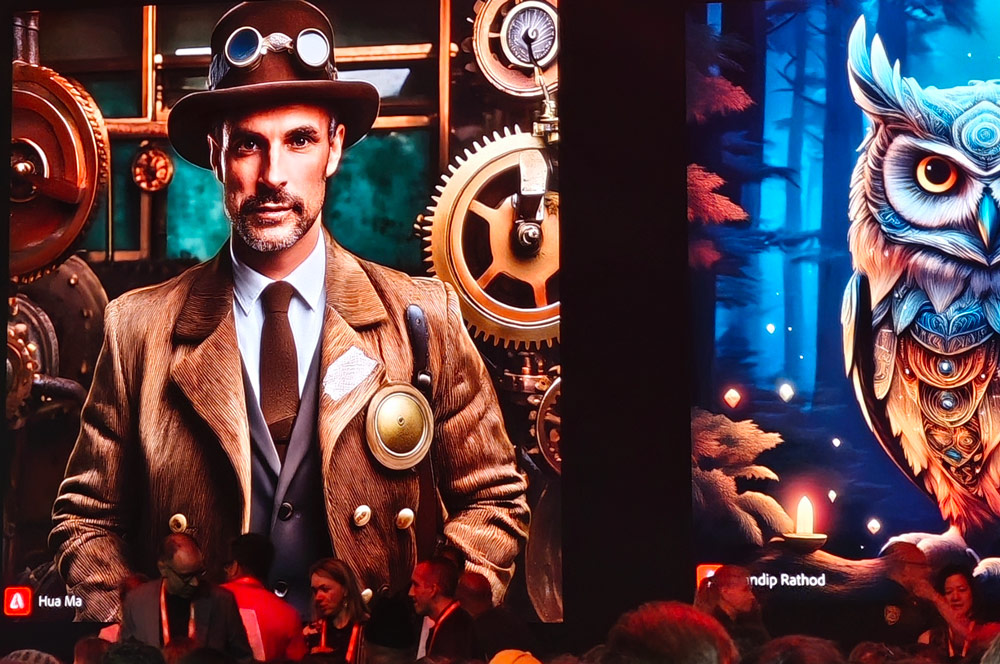
But it’s important to remember that a lot of this is aimed at people and businesses wanting to generate a quick illustration, rather than sack their photographers.
As for the ‘stiff and awkward’ photo-realistic AI images being generated, I also agree that the dead eyes and unrealistic postures are often a giveaway. You really don’t need to be Harrison Ford in Blade Runner to spot the replicants here.
But Jon then does consumers of photography a disservice by suggesting they won’t care if the AI images they generate are a bit rubbish, as it’s cheaper than booking a photographer. Unless a company really is a fly-by-night outfit, it’s not going to settle for AI images of its products (or key staff) that fail to show them at their best, especially if it’s made a big investment in both. Skilled headshot photographers, for example, are still in business.
Yes there will be victims of generative AI, but I’d argue the rise of easy smartphone photography and the near-scandalous way in which Google allowed high-resolution images to be download for free via its image search both had a much bigger impact on livelihoods.
Indeed, I was talking to a photographer last week who’s noticed more clients wanting ‘proper’ product photography as they are not happy with the AI-generated results.
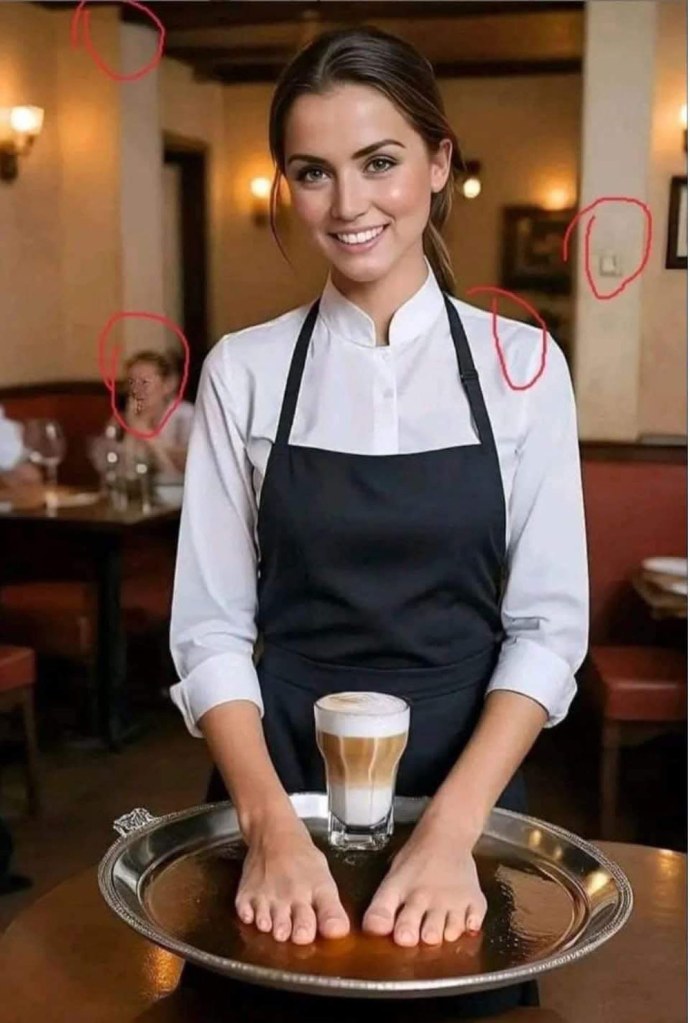
This may change as AI gets more sophisticated, but logic suggests It is simply not in Adobe’s interests to put lots of photographers out of business, as it would also lose a lot of, er, business. Just look at how much it invests in the photo-editing tools in Photoshop, Lightroom and their associated apps. I’ve also met some senior Adobe engineers and product managers, and they are all keen photographers too.
Cheesy and unconvincing AI-generated images aside, AI is actually being used to great effect to save time on photo-editing chores so we can all focus on more interesting things (like actually taking photos).
As AP contributor and noted photographer Will Cheung explained to me last week: ‘the real win with generative removal in Photoshop (especially) and Lightroom is the ability to recover and repair images. Being able to remove distractions is really powerful and while I could do it manually, life is too short.’
Thanks to Adobe, we’re all doomed!
Jon writes as if the dystopian AI future is already here, with conventional photographers and camera firms facing a similar predicament to hand-loom weavers at the start of the English industrial revolution. Leica has just recorded the best-ever results in its history, while I don’t notice Canon, Nikon, Sony and Fujifilm etc issuing profit warnings as generative AI has wiped out the need to buy a camera or lens – so go figure.
Adobe is doing a lot to push ‘Content Credentials’, so you can see how much AI was used to generate a digital image and everything is more transparent. Major media organisations, such as the BBC, are behind such initiatives too, as it’s in everyone’s interest to make ‘deep fake’ images easier to spot. So it’s not like Adobe is panicking and trying to put the genie back in the bottle on its own.
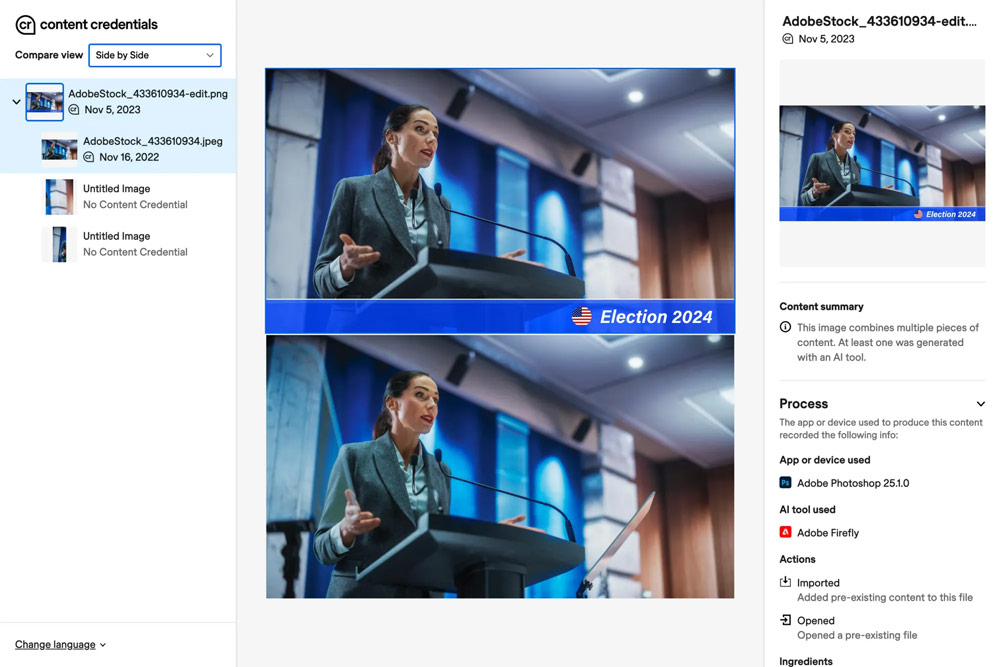
Yes, not everyone will bother checking out this ‘nutrition label’ system or even care much if AI was the main ingredient, but I can also see a future where AI co-exists with conventional photography.
‘Made without AI’ could actually become a big selling point for photographers and film makers – just as lots of us prefer to buy healthy/organic food, free of artificial ingredients. Many people assumed photographers would never shoot film again, as digital was easier and cheaper. Not so.
Here’s to the future
AI is here to stay, and it’s easy to pick on Adobe as it’s such a big target. If it wasn’t putting AI into its photo editing programs, lots of other competitors would be (indeed, you’ve been able to replace the sky or enhance portraits beyond recognition with Skylum’s software for years).
To conclude, I have a sense that market forces might trigger a rethink of Adobe’s subscription model at some point. As for AI, I think ‘creative co-existence’ is the best outcome here, not trying to turn the clock back or punish innovation as we are worried about its possible implications. As Joe Strummer of The Clash said, ‘the future is unwritten.’
The views expressed in this column are not necessarily those of Amateur Photographer magazine or Kelsey Media Limited. If you have an opinion you’d like to share on this topic, or any other photography related subject, email: ap.ed@kelsey.co.uk








